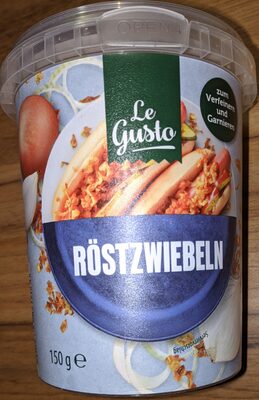
Barcode: 4061462383120
Röstzwiebeln
HALAL
📝 Reason: All ingredients listed are plant-based or mineral-based, with no Haram or Doubtful substances identified. According to Islamic dietary laws, plant-based and mineral-based ingredients are permissible unless contaminated with Haram substances. The product does not contain any meat or meat by-products, and there is no indication of alcohol or Haram E-codes in the ingredients.
📄 Certificates: None
Ingredients:
Details
Understanding Röstzwiebeln and its Halal Status
Röstzwiebeln, a popular ingredient made from fried onions, has been garnering attention, particularly among those observing Halal dietary guidelines. This post delves into the Halal status of Röstzwiebeln, explaining its ingredients and the reasoning behind its classification as Halal.
What Makes Röstzwiebeln Halal?
The Halal status of Röstzwiebeln is affirmed due to its ingredients, which are entirely plant-based or mineral-based. As per Islamic dietary laws, foods derived from plants or minerals are permissible (Halal) unless they are contaminated with Haram (forbidden) substances. Röstzwiebeln contains no meat or meat by-products, and importantly, does not include alcohol or any E-codes that are considered Haram.
Ingredients and Their Halal Status
Let’s analyze the ingredients within Röstzwiebeln:
- Zwiebeln (Onions): Onions are a staple in many cuisines and are completely plant-based. According to general Islamic dietary guidelines, onions are considered Halal.
- Palmöl (Palm Oil): This ingredient is derived from the fruit of the oil palm tree and is also plant-based. Similar to onions, palm oil is viewed as Halal.
- Weizenmehl (Wheat Flour): Wheat flour is another plant-based ingredient, making it Halal. It is commonly used and widely accepted in various diets.
- Salz (Salt): Salt is a mineral-based substance and is Halal by nature. There are no issues concerning its Halal status.
Analysis of E-Numbers
Interestingly, Röstzwiebeln does not contain any E-numbers (food additives), making it simpler for consumers concerned about Halal compliance. The absence of E-codes means that there are no additional preservatives or flavorings that could potentially compromise the Halal status of the product.
According to the information provided, we can affirm that none of the ingredients in Röstzwiebeln carry a negative Halal flag. Each ingredient has been scrutinized and fits within the parameters set by Islamic dietary laws.
Conclusion: Röstzwiebeln as a Halal Choice
In summary, Röstzwiebeln is indeed Halal, thanks to its straightforward composition of onions, palm oil, wheat flour, and salt. Each ingredient aligns with Halal dietary requirements, ensuring that consumers can enjoy this tasty product without concern. Whether used as a topping for salads, added to soups, or enjoyed on snacks, Röstzwiebeln serves as a versatile and Halal-friendly option.
For anyone following Halal dietary laws, Röstzwiebeln is a great addition to your pantry. Its Halal status, confirmed by the absence of harmful ingredients, makes it a safe and delicious choice for those seeking Halal foods.

